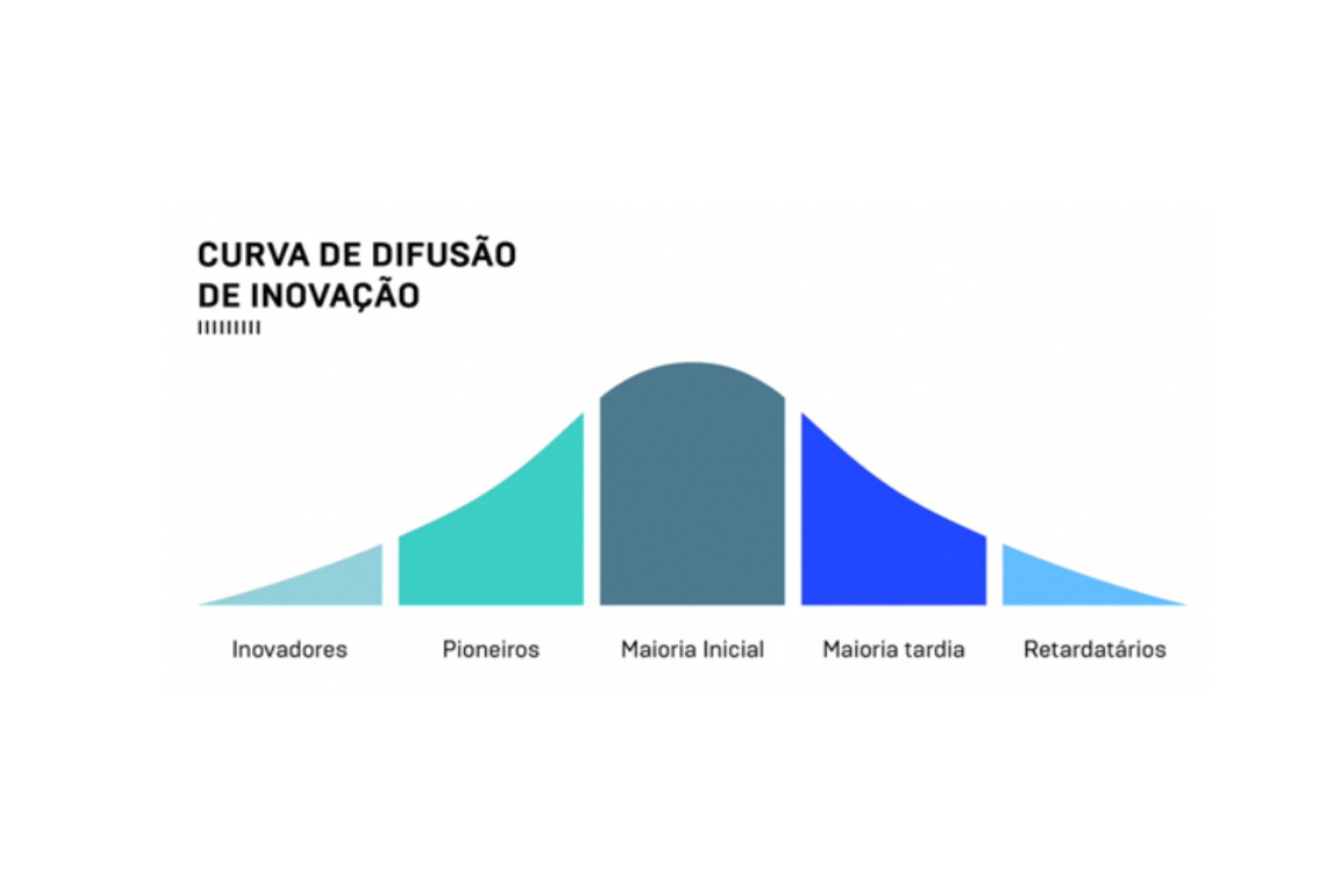The innovation curve and the use of AI in GRC

The innovation curve and the use of AI in GRC
In recent years, Artificial Intelligence (AI) has ceased to be a distant promise and has become a concrete reality in the corporate world.
In 2024, 72% of companies around the world had already adopted this technology, a significant improvement compared to 55% the previous year. The information is from the survey “The state of AI in early 2024: Gen AI adoption spikes and starts to generate value”.
This accelerated growth reflects the constant search for innovation and competitiveness in the global market. Among the various areas that benefit from AI, governance, risks and compliance (GRC) emerges as one of the most impacted, driving a new era in business management. Therefore, this article will clarify the innovation curve, detail its stages, and provide effective strategies to take advantage of it in the corporate GRC environment.
About the Dissemination of Innovation Act
To understand how AI is being incorporated into GRC strategies, we will understand the context of the Law of Dissemination of Innovation, proposed by sociologist Everett Rogers in 1962.
This theory describes the process by which new ideas and technologies are adopted by different segments of society over time. The innovation curve, graphically represented, shows how adoption spreads from the first innovators to the late majority. Companies that understand this dynamic remain competitive and relevant in a business environment.
Understanding the GRC Innovation Curve
In the context of GRC, the innovation curve reveals how companies are incorporating emerging technologies, such as AI, into their processes.
Initially, the most pioneering organizations began to explore AI to improve risk management, automate compliance processes, and strengthen governance. As the benefits of these innovations became evident, more companies followed suit, moving along the adoption curve.
This gradual progression shows that the adoption of AI in the GRC does not occur uniformly. The most agile and visionary organizations adopted early, obtaining significant competitive advantages, while others are still at the beginning of this journey, seeking to understand how these technologies can be integrated into their business models.
The role of governance in the adoption of AI
For the implementation of AI to be successful, a governance framework is needed that ensures compliance, transparency, and ethics in the use of technology.
This involves creating clear policies, defining responsibilities, and implementing appropriate controls to monitor the use of AI and mitigate any associated risks. In addition, governance must ensure that AI is used in a way that aligns with the company's strategic objectives, promoting trust among all stakeholders.
Risk Management with Artificial Intelligence
Risk management is an area where AI demonstrates its potential to transform GRC, since, through advanced algorithms and machine learning, AI can analyze large volumes of data in real time, identify patterns and predict possible risks before they materialize. In addition, AI can automate repetitive and error-prone tasks, such as regulatory compliance analysis, freeing up resources for activities of greater strategic value.
Impact of AI on market leadership
Companies that strategically adopt AI in their GRC practices are positioned to stand out in the market due to their ability to manage risks with greater accuracy, ensure compliance, and improve internal governance, conferring a significant competitive advantage.
The effective use of AI allows organizations to innovate continuously, quickly adapting to regulatory changes and market dynamics. In a scenario where innovation is one of the main levers of growth, leading companies will be those that know how to integrate the news safely and efficiently into their operations.
The innovation curve, combined with the strategic use of Artificial Intelligence in GRC, is redefining the way companies approach governance, risks, and compliance. The future of GRC will be marked by technologies that drive innovation, creating a more secure, resilient, and competitive business environment.
Vennx effectively integrates AI into your GRC strategies and ensures that you're ahead in this commonly traditional market. Click here and talk to one of our experts.
Posts Relacionados
Informação de valor para construir o seu negócio.
Leia as últimas notícias em nosso blog.







